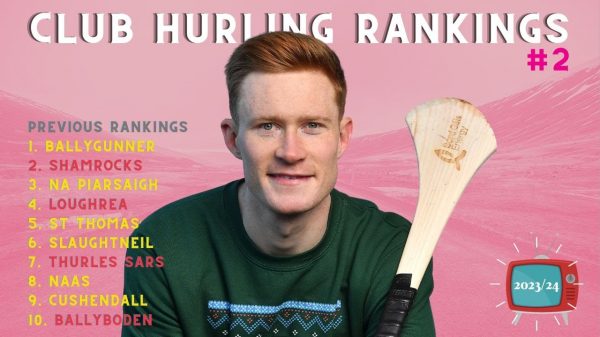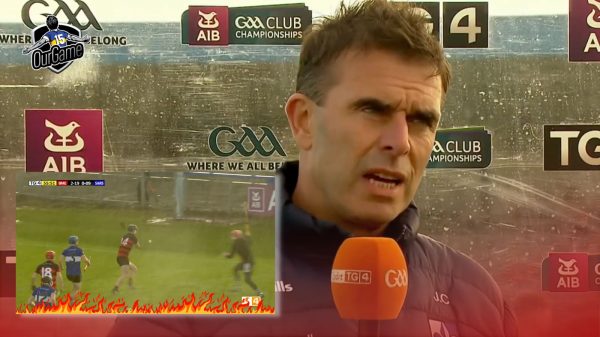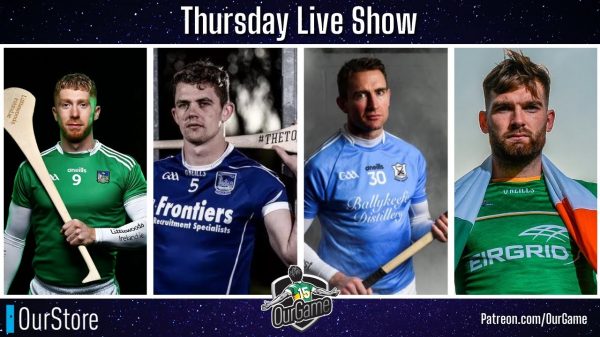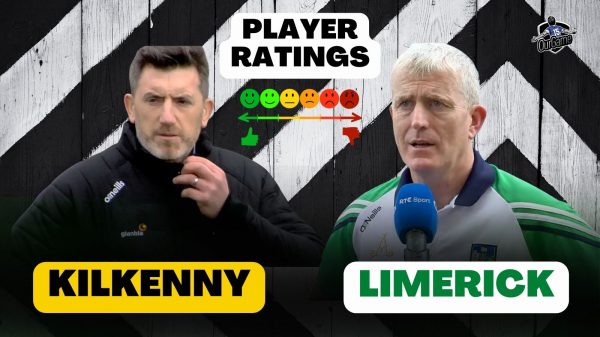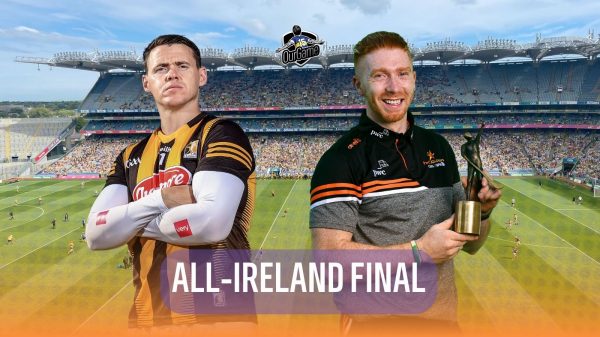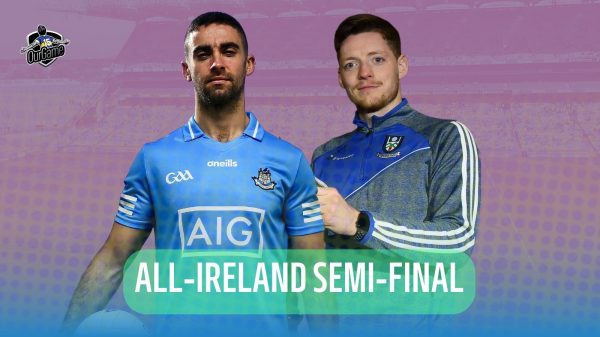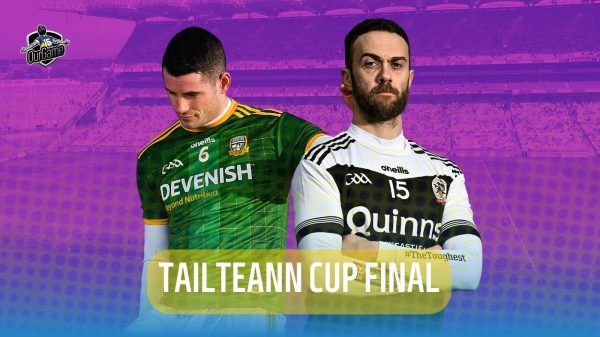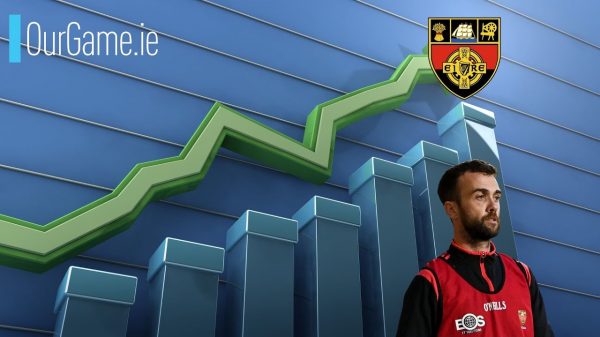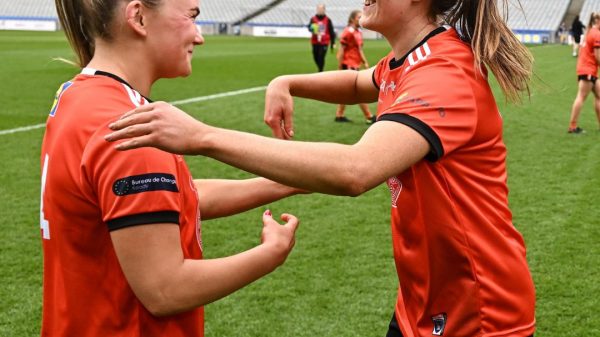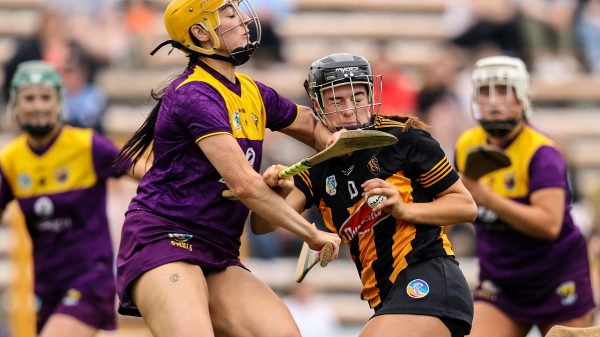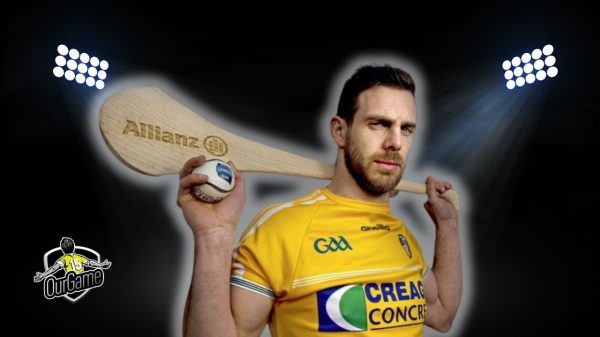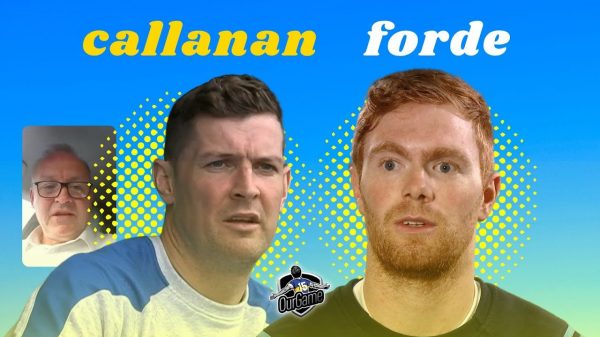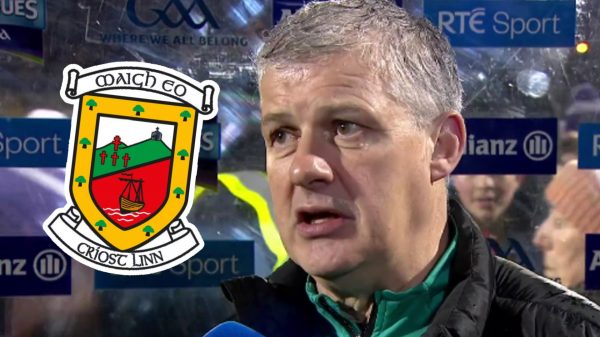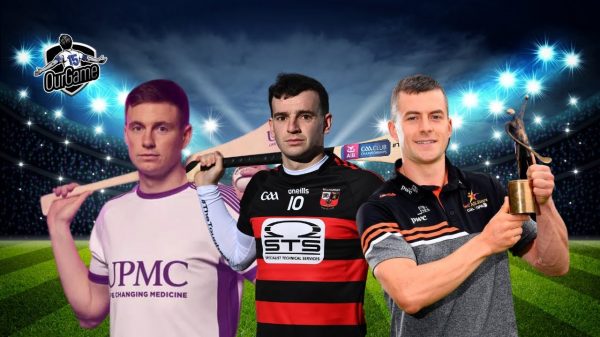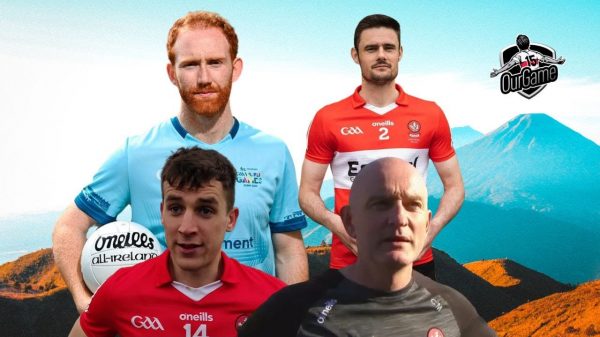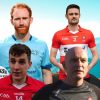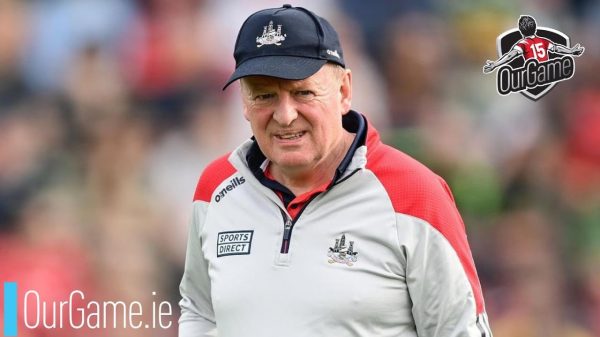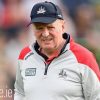
In an extract from his memoir ‘Everything: The Denis Coughlan Autobiography’ the former Cork dual star, and winner of five All-Irelands and four All Stars remembers a date with his future wife that almost cost him the Cork captaincy before the 1967 All-Ireland football final, and his glorious career.
****
ON THE WEEK of the All-Ireland football semi-final against Cavan in August 1967, my father’s sister Mary died in Cork. He felt that, even though I was captain, he should not go to the game – it would not be appropriate.
The game was on television and television was really only beginning to show live sport – before, we always would have listened to matches on the radio. Television was only in black and white that time and that influenced the jerseys and togs that teams wore. For example, Cork wore black togs to differentiate us from the Cavan players in 1967. RTÉ only televised semi-finals and finals so it was a big deal. Not everybody had a television, so people would crowd into neighbours’ homes to watch matches.
At this time, I had known Margaret for three or four years and she was living in Dublin. And the only times I could really get to see her were when I was visiting Dublin. By 1967 it wasn’t really on for me to go to rugby internationals anymore because of the Ban – I might be recognised. So, the game against Cavan was a great opportunity to meet. Margaret hadn’t come to Cork yet by that time and so those visits were rare and precious to us both.
On the day before the game, the Saturday, the Cork panel travelled on the train and we arrived into Heuston Station at around 6pm. I had arranged to meet Margaret at Nelson’s Pillar on O’Connell Street. One of the lads took my gear to the team hotel which was the Lucan Spa Hotel.
Margaret and I went to the pictures. Amazingly, (53 years later) I can still remember the film. It was a Steve McQueen film called The Sand Pebbles. It was a kind of a war film set in China and Dickie Attenborough was in it too.
When the film was over, I took Margaret back to her family home in Rialto on the bus. I dropped her home and then I began to walk to the team hotel in Lucan. I didn’t know how far it was. I thought it was maybe a few miles but it turned out to be a long walk, especially with the match the following day. I think it was seven or eight miles.
So, I walked out to Lucan and I didn’t get to the hotel until about midnight.
When I arrived there several men were waiting for me in the foyer. What they had to tell me was not good.
I knew things were serious when I saw the expressions on their faces. As well as the three selectors, who else was standing there only the chairman and secretary of the county board, Jack Barrett and Con Murphy, looking very stern. They demanded to know where I had been.
Despite being shocked I remembered that my aunt had died during the week. Maybe I had this in the back of mind, in case I was caught. I told my ‘welcoming committee’ that my father’s sister had died during the week and that I had to go to visit another aunt (her sister) who was living in Dublin to pass on my condolences and that we went to Mass together. I don’t know where that came from but, in any case, they said it didn’t matter.
There had been a meeting earlier that night of the players and selectors to plan out the game the following day, and as captain I should have been at it. They told me that I wouldn’t be playing for Cork on the following day because I had missed the meeting. Then they sent me off to bed like a small boy.
In my defence I have to say that at no stage up to then in my sporting career had there ever – ever – been a players’ meeting on the night before a match. It just didn’t happen those days. Nor did we have meetings on the morning of games – it wasn’t the done thing, unlike today. So, I had no way of knowing that there would be a meeting the night before the Cavan match since there had never been one before. If I had thought I would be needed, as a player, or especially as captain, I would of course have gone straight to the hotel from the train station and stayed there all night.
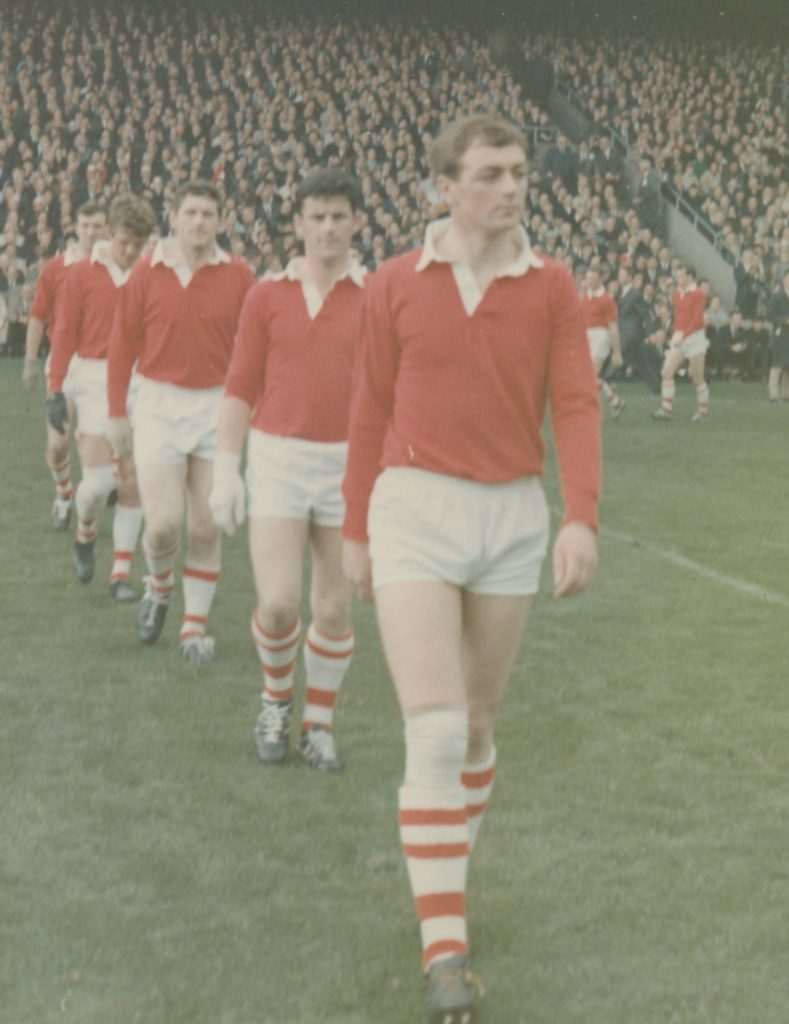
So, when I went on the date with Margaret, I had no worries that I would be missed or that there would be an issue for me. I thought there would have been some food or fellows might go to their rooms, or watch television, or they might play cards or something like that.
Now, the moment they told me I wasn’t playing the following day, I took it as gospel. They were adamant – there wasn’t a question about it – I would not be playing in the semi-final against Cavan. And when they dismissed me to go to bed and I went to my room I knew that I would not be lining out the following day. What I didn’t know were the long-term implications with regard to future selection. It didn’t matter that I was captain – for them, that made my indiscretion more serious. And these were very respected people and very influential men when it came to the GAA in Cork.
Furthermore, players did what they were told those days – the place of players in the hierarchy was much, much, lower than it is today. Players were there to be seen and not heard, as people used to say about children. And you took the word of the selectors at that time – what they said went and that was that.
It was a long night – I can’t say I slept well. But what would happen in Croke Park the following day wasn’t my main worry. My biggest worry was the fact that the match was being televised and my father would be at home watching the television and I would not be on the team. And I did not know how to explain this to him. What would he say and what would I tell him? Amazingly, this was the main reason for my sleepless night. But there was nothing else to do except await my fate.
ON THE FOLLOWING morning I doubt I had much of an appetite for breakfast. I went to Mass with some of the other players. After Mass, the selectors called us all together again because they wanted to finalise some of the details of the game such as who would take frees in the back line and in the forward line. Since I wasn’t playing, it didn’t really concern me but of course I went to the meeting along with everybody else on the panel. I was at the meeting but I was not really a part of it. I was waiting for the announcement that I would not be playing and why; along with who would be replacing me as captain and who would be on the team in my place. I kept my head down.
They started to outline who would be taking the frees and 50s and letting those players know. Then there was a bit of a lull and I was waiting for my fate to be confirmed. Suddenly, out of the blue, somebody asked what would happen if we got a penalty – who would take it? Now, in those days, penalties were few and far between. You nearly had to decapitate somebody for a penalty to be given against you.
And for some unknown reason (I still don’t know why) I said I would take the penalty. I don’t know where on earth this came out of. Especially because I had not been taking penalties regularly. I had not been practicing penalties – in fact, we did not practice penalties at all in training; it was never part of the conversation the way it would be nowadays when every single thing is planned in advance. I had taken one penalty in my career against Galway in the under-21 All-Ireland semi-final two years previously and I don’t know why I ended up taking that, either.
It was actually very difficult to score a penalty in football at the time. The ball didn’t travel as fast – it was heavier (often muddier) and there was no swerve on it, as there is today. Boots weren’t a patch on what they are today either.
When I said that I would take the penalty there was no reaction from anybody. There was a kind of a silence or at least I thought there was a silence, because, of course I was waiting for someone to say you won’t be playing… what are you talking about? Instead, nobody spoke for a while, and then somebody said, ‘Okay, so’ or something like that. And the meeting continued and was wound up.
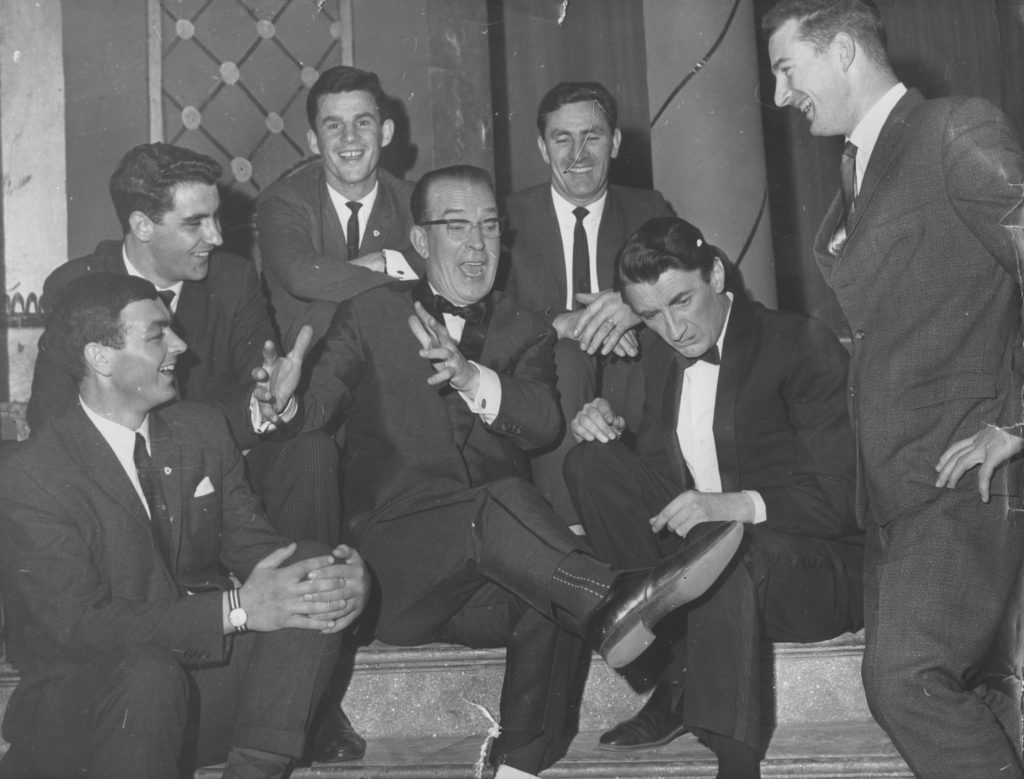
Only at that moment did I realise that, in fact, I would be lining out after all. Whether they changed their mind, or they only wanted to give me a fright the night before, or if somebody interceded on my behalf, or what else might have happened – I will never know.
The only things I did know were that I would be playing and I was still the Cork captain and – most importantly – that I wouldn’t have to explain anything to my father. Best of all, the chances of there actually being a penalty were astronomical – there was no fear I’d have to come good on my ‘volunteering’ to take it.
But, with two minutes to go in the game and with Cork two points down, what happened? We got a penalty. I was centre-back so I ran nearly the length of the Croke Park pitch to take it, knowing full well that if I missed, we would probably lose.
That was a long run. There was a lot going through my head. But I had to take it, I said I was going to take it – albeit in unusual circumstances, let’s put it like that. Luckily, I managed to score which put us a point ahead.
But the game wasn’t over, and Cavan went on the attack from the kick-out. They won a last minute free to draw the game but Charlie Gallagher – Cavan’s top player, in fact Ireland’s top scorer in 1967, a wonderful footballer who died tragically young – missed the free. He just barely put it wide. So, we survived and made it into the final against Meath.
What a turnaround. The night before I was facing the prospect that I had possibly disgraced myself, disgraced my family and disgraced my club. At the age of 22 my whole career with Cork could even be at an end. I had no idea what was in store for me and I had no idea what I was going to say to people when the team was announced on the Sunday with me not on it for disciplinary reasons. I suppose I would’ve told them the truth – I honestly don’t know.
THE ALL-IRELAND FINAL wasn’t for another seven weeks, so I was able to go on a motoring holiday to England with my friends for seven days.
Finbarr O’Neill had relations in Birmingham so we drove there first, four of us in his Mini. Our plan for the holiday was to drive to all the soccer grounds we could in England. A remarkable thing in hindsight but that’s what we planned and that’s what we did. The soccer season had already started but our plan wasn’t to go to games; instead we wanted to see some of the famous grounds we had read about and heard about so much since our childhoods.
I’m not sure of the order of the grounds we went to, but we visited stadiums in Birmingham (Villa Park), London (Highbury), Blackpool (Bloomfield Road) and Manchester (Old Trafford).
Blackpool was a big club, a famous team in 1967, and they played in the First Division. They had some of the great players of the 60s like Jimmy Armfield (who went on to manage Leeds United), and Alan Ball also played with them – and, of course, Stanley Matthews had played for Blackpool all through the 50s and into the early 60s. We went into Bloomfield Road to watch the first team training – you could do that those days.
Eventually, we made our way to Manchester. Strangely enough, or maybe not so strangely, (given I had an All-Ireland final in a few weeks’ time) I brought my gear with me. I was training during the week – doing a bit of running and so on. I had a good run on the beach in Blackpool one day, I remember.
We strolled into Old Trafford. We walked through an open gate under a stand and there was the pitch and the famous ‘Field of Dreams’ arrayed around it. Now, this was the Manchester United of Matt Busby. They were the league champions, for starters, and were about to have the season of all seasons, winning the European Cup. This was the club of Best, Law, Charlton, Kidd, Foulkes – the names just roll off the tongue and, of course, there was a strong Irish contingent, including Shay Brennan, Tony Dunne and Cork’s own Noel Cantwell.
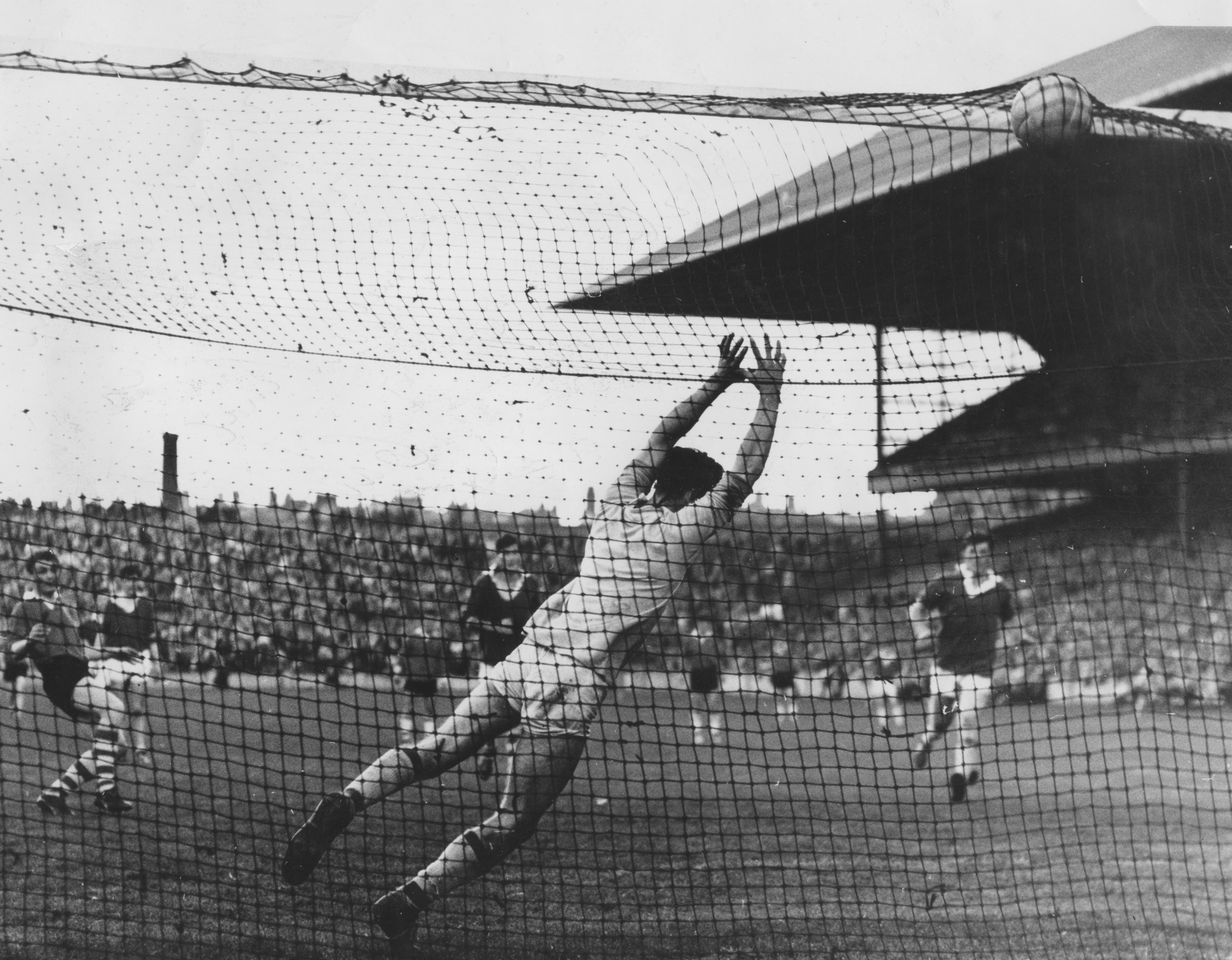
When we got inside the ground, we saw that a group of players were training at the other end of the pitch and we made our way up towards them and watched them kick balls around and do various drills. I told the lads that Noel Cantwell’s brother used to work with my mother in Cohen’s in Cork city. That’s the thing about Cork – there’s always a connection.
Anyway, we got close enough to one of the players and he asked us where were we from. We said we were from Cork and he said, ‘Noel is from Cork you should talk to him’. So, Noel came over and we were chatting away to him for a while and I told him about the connection between my mother and his brother in Cohen’s.
I must admit I also told him that I was playing in the All-Ireland final for Cork in three weeks’ time, and his eyes widened. Whatever possessed me, I asked could I do a bit of training because I needed to get ready for the match against Meath.
‘Come on, boy,’ says he, and I had my gear with me so I changed and I did a bit of training on the pitch at Old Trafford. There I was kicking a ball around with the Manchester United players in preparation for the All-Ireland football final of 1967.
WHEN YOU THINK of all the trouble players got into over the infamous Ban not even for playing but merely attending games – and there was I, the captain of Cork, not only playing a foreign code, but with foreign players, on a foreign pitch, in the heart of the old enemy, England. If the county board ever found out, they would have had my guts for garters.
*‘Everything: The Denis Coughlan Autobiography’ (with Tadhg Coakley) is published by Hero Books and is available in all good book shops and also online (print or ebook) on Amazon, Apple and all quality digital stores.
